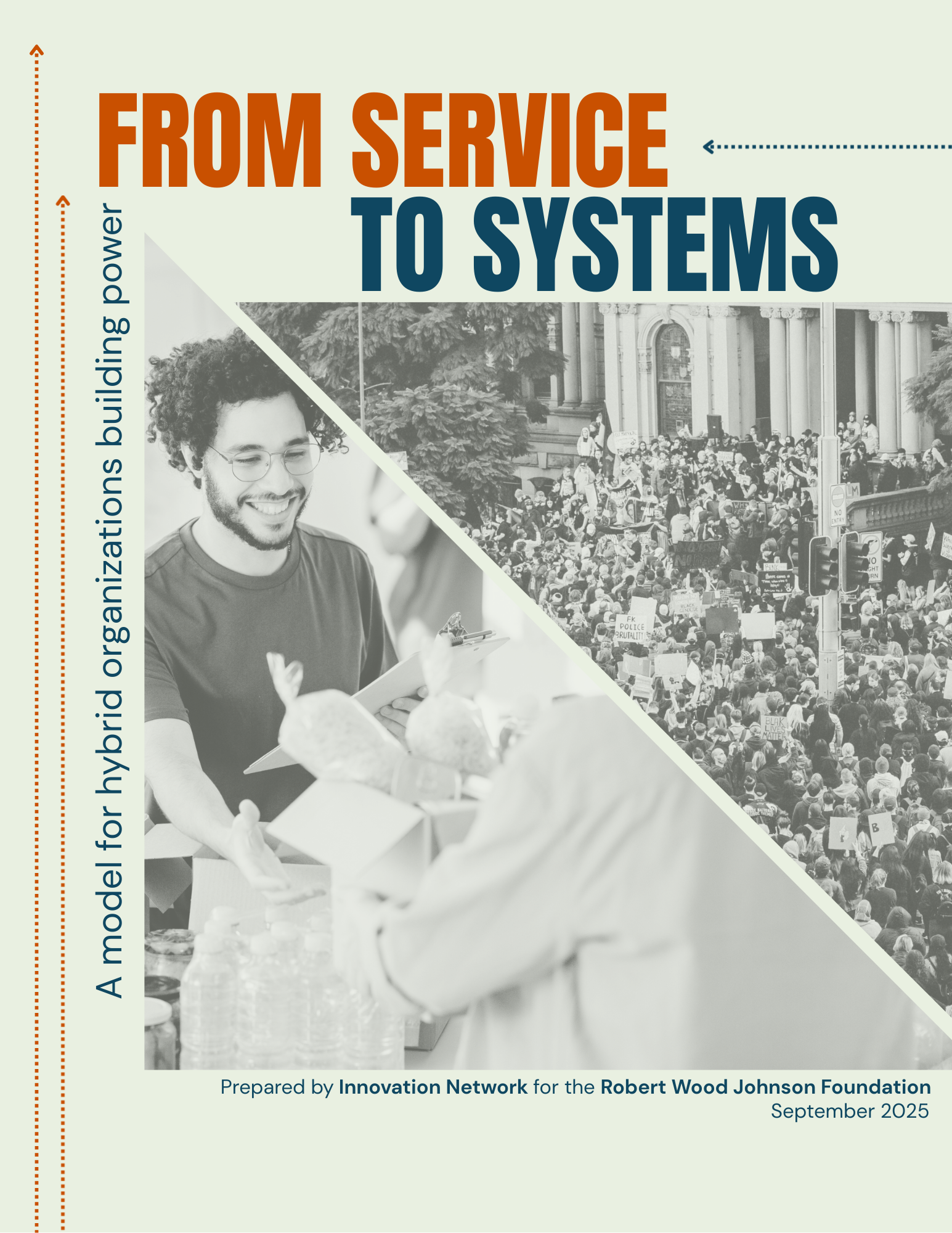From Service to Systems: A model for hybrid organizations building power
This paper introduces a conceptual model that illustrates how the structure of “service-advocacy hybrid” organizations, nonprofits that both provide direct services and engage in advocacy, are already contributing to power building in four key ways: (1) amplifying community members’ voice in the advocacy process in non-tokenistic ways; (2) accelerating solutions for the issues community members face, ensuring uptake of policies and programs through shifting narratives and generating and leveraging evidence; (3) convening community members and other advocacy actors to work together toward shared goals; and (4) educating to strengthen the capacity of community members to engage in the advocacy process, as well as other organizations’ ability to understand their community members’ issues. It explores how the interplay between service and advocacy helps organizations center community voice and solutions and provides a framework that philanthropy can consider as it supports service-advocacy organizations to build community power to catalyze change.
View Resource